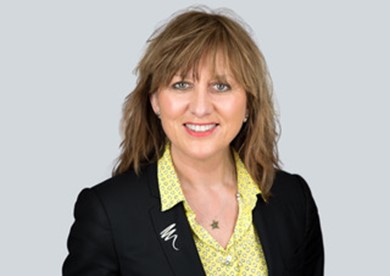As a firm, we strongly support the notion that diverse leadership is critical for organizational success. A discrepancy between the prevalence of women in the pipeline and absence of equal representation in advanced leadership roles, highlights the need for organizations to correct the strategic, structural, and cultural components which impact diversity, inclusion, and equity.
In Honor of Women’s History month, we are proud to feature interviews with TLD Group faculty in which we explore their perspectives on female leadership and their experiences coaching female talent.
Interview with TLD Group Executive Coach- Jo Bond
What female leader inspires you and why?
Historically: Joan of Arc and Queen Elizabeth I. Both are examples of leaders who were alone as women in very pivotal, important positions, surrounded by men. Both attained fantastic achievements in the circumstances. I admire women who are trailblazers and have made a significant difference, who stand out and pave the way, and inspire women who are following on from them.
Emmeline Pankhurst, best remembered for organizing the UK suffragette movement, was slightly different. She wasn't alone. There were lots of other women around her. But she led that movement and succeeded in that helping some women in the UK to get the vote in 1918 and all women by 1928.
More recently: Gloria Steinem. She personifies a real emotional intelligence in how she has gone about achieving real change, inspiring other women, and navigating through very difficult, choppy waters. I heard her speak recently - she's now in her eighties - and she was incredible. She listens to other people's points and responds very calmly and very succinctly, and provides great insights. She is a powerful communicator.
It is hard to generalize as the range of differences within each sex is greater than between the sexes. However, I have observed that many successful women leaders have exceptional emotional intelligence and a real focus on collegiality, cooperation and collaboration.
What do you think are the most significant barriers for female leaders attempting to advance and grow their careers to the top tier of an organization?
For those female leaders who are parents, I agree with Sheryl Sandberg, who said, "The most important career decision is who you marry." Having a partner in home life who is supportive not just in words, but in very practical ways (meets them at least halfway with responsibilities around childcare arrangements and managing the home), is very important. I'm blessed with a husband who absolutely is very much a feminist. He's absolutely supported me in my career and around the home. I couldn't possibly have done all the things I've done if I hadn't been married to Andrew and if he'd not been so supportive.
As an executive coach, what trends have you seen in coaching women in leadership positions (or roles)?
I find that, disproportionately, women that I'm coaching for leadership positions are dealing with imposter syndrome. Building confidence is key, quite often because women do not have female role models in their organization to give them the confidence to be the best version of themselves. Women have to be themselves - authentically themselves. It is not as commonly an issue for men because there are hundreds or thousands of role models available for them.
In coaching it is about building authentic confidence and inner strength, and learning how to manage their inner doubts and the imposter syndrome that can rear its head from time to time. Then certainly women, I think disproportionately, are not so comfortable negotiating for a promotion, or negotiating pay matters. Too often [women] take the view that, "Well, if I do great work, I'll be rewarded. They'll notice me. I don't have to manage my presence and ask." But if you don't ask, you're not always going to get. It's important to ask for what you want and make clear what your goals are.
There is phenomenal untapped potential in many female leaders – this needs unlocking, developing and encouraging.
What advice would you give to women with aspirations of reaching executive leadership roles?
Don't try and do it all on your own. As I've said before, quite often, women leaders are often the only one at that level within their organization. Be intentional about building a great support network around you. Work with a mentor or use a leadership coach to bring out your best and maximize your potential. That person can work with you objectively and confidentially, and help you to play to your strengths, manage your derailers, and to both support and challenge you. They can be a confidant and somebody to rehearse with, bounce ideas around with, or to talk openly with in a way that you cannot do with people inside your organization.

Jo Bond
Jo is a highly experienced and respected leadership coach and mentor. She has coached and mentored more than 600 individuals from over 120 sponsoring organizations, including leading global corporates, UK SMEs and start-up ventures, and public sector bodies. Her individual clients include over 30 nationalities and span all seniority levels up to board directors - incorporating leaders, heads of professional functions, mid-tier executives, newly appointed managers and emerging talent. She has also helped a number of organizations to create coaching and mentoring cultures, training and developing internal coaches and mentors.
Fifty percent of Jo’s coachees are female and she really enjoys helping them to achieve the career success that they deserve, ensuring that they maximize their potential. When coaching working mothers, Jo can draw on her personal experience of raising three children (now adults) whilst working full-time.
Jo’s career encompasses several senior leadership roles across general management and the professional, functional specialisms of human resources, marketing and communications. She has worked in several international organizations spanning aviation, financial services and consulting and has held the roles of COO, General Manager, Managing Director and Group Director Marketing, Communications and HR. She followed her Biology degree with a Masters in HR at LSE and a Masters in Coaching and Consulting for Change at INSEAD.



